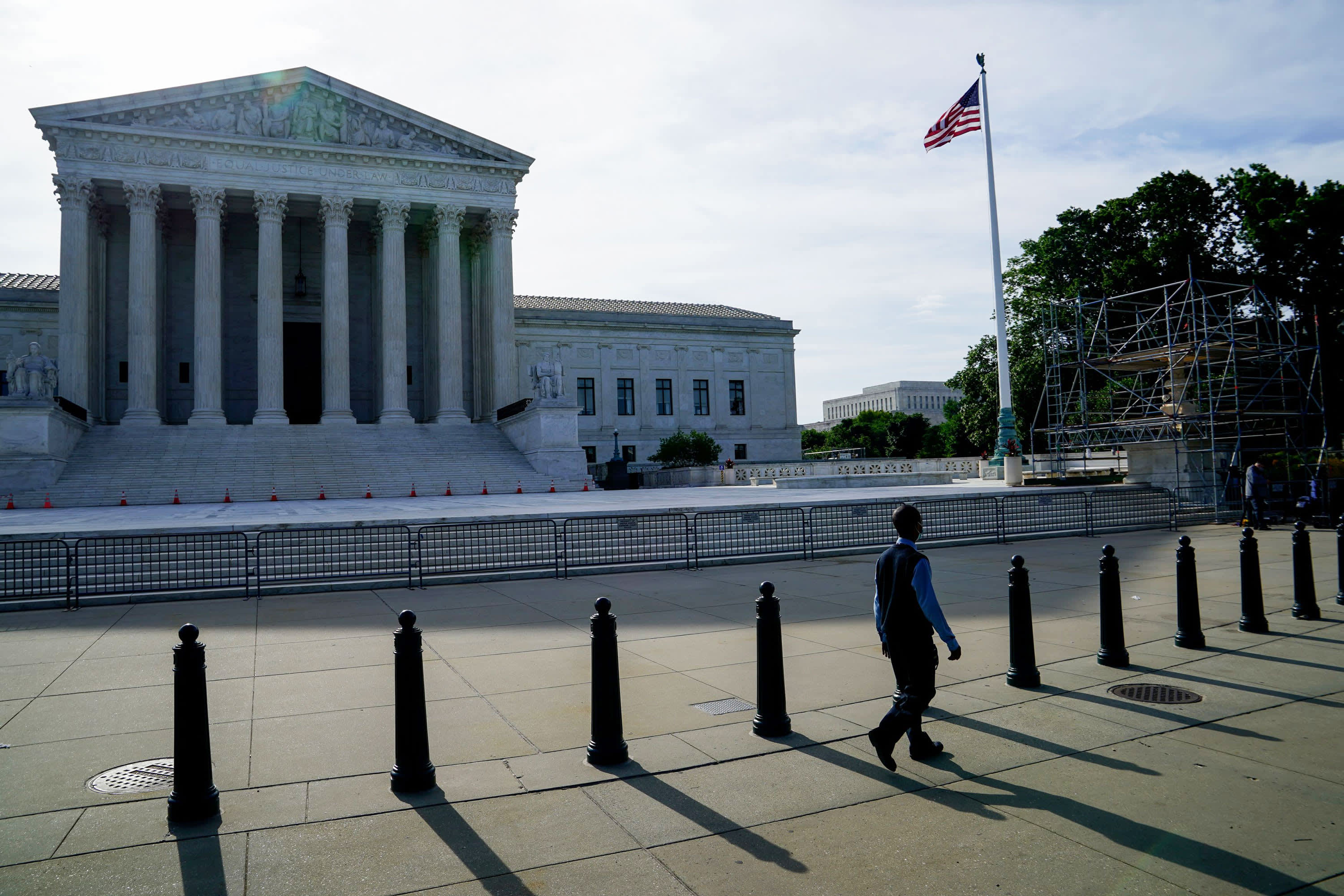
People walk past the U.S. Supreme Court the day the court is set to release orders and opinions in Washington, June 1, 2021.
Erin Scott | Reuters
The Supreme Court declined to block a Texas law banning most abortions in a 5-4 decision late Wednesday.
Chief Justice John Roberts and the court’s three Democratic appointees, Justices Stephen Breyer, Sonia Sotomayor and Elena Kagan, dissented.
The “heartbeat” law took effect after midnight in Texas on Wednesday. It bars most abortions after as early as six weeks of pregnancy — when many women still have yet to discover they are pregnant — and allows private citizens to file civil lawsuits against abortion providers.
Sotomayor called the decision “stunning,” saying the Texas law “flouts nearly 50 years of federal precedents.”
“Presented with an application to enjoin a flagrantly unconstitutional law engineered to prohibit women from exercising their constitutional rights and evade judicial scrutiny, a majority of Justices have opted to bury their heads in the sand,” she wrote.
On Monday, a group of abortion providers and advocates, including Planned Parenthood, had filed an emergency request to block the law’s implementation. The petitioners said the law would essentially overturn the precedent set by Roe v. Wade, the landmark 1973 case that enshrined the right for women to choose to have an abortion.
In response, a group of Texas officials including Attorney General Ken Paxton urged the high court to deny their opponents’ bid to thwart the law, calling the request “audacious.”
‘Unprecedented’ enforcement scheme
S.B. 8 was signed into law in May by Republican Gov. Greg Abbott. It prohibits doctors from performing or inducing abortions if they have “detected a fetal heartbeat for the unborn child,” except in medical emergencies.
Roberts wrote that the law was “not only unusual, but unprecedented” in how it delegated enforcement to the public, instead of state officials.
“The desired consequence appears to be to insulate the State from responsibility for implementing and enforcing the regulatory regime,” he wrote.
The new law empowers individuals to file civil lawsuits against abortion providers or anyone who “aids or abets” the procedures after the detection of a heartbeat. Those lawsuits can yield at least $10,000 in “statutory damages” per abortion.
Sotomayor said, “In effect, the Texas Legislature has deputized the State’s citizens as bounty hunters, offering them cash prizes for civilly prosecuting their neighbors’ medical procedures.”
This is breaking news. Please check back for updates.
— CNBC’s Kevin Breuninger contributed to this report.




